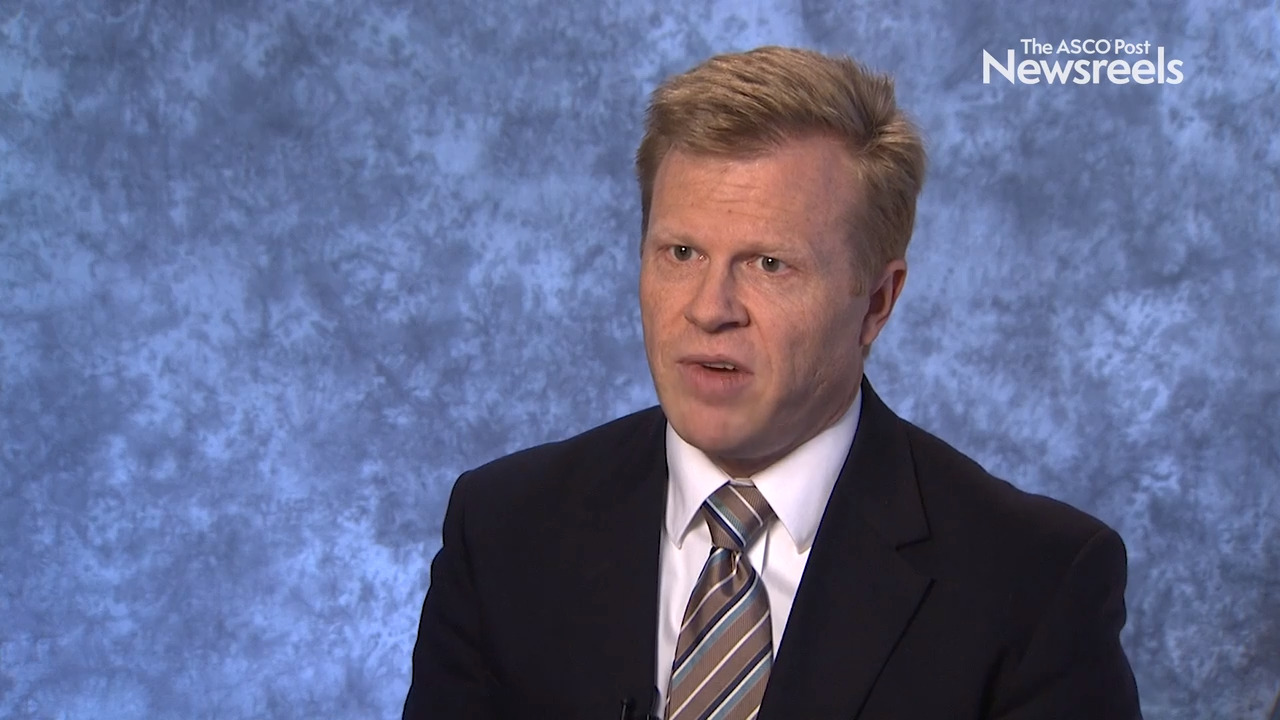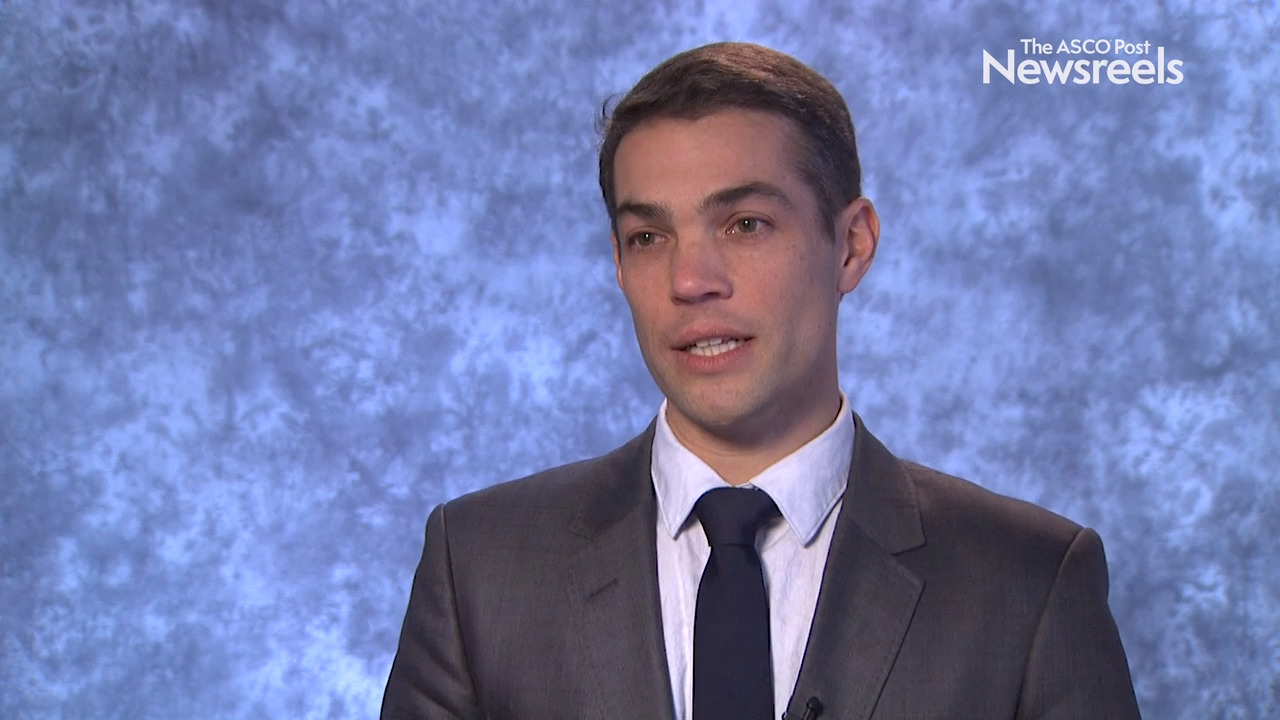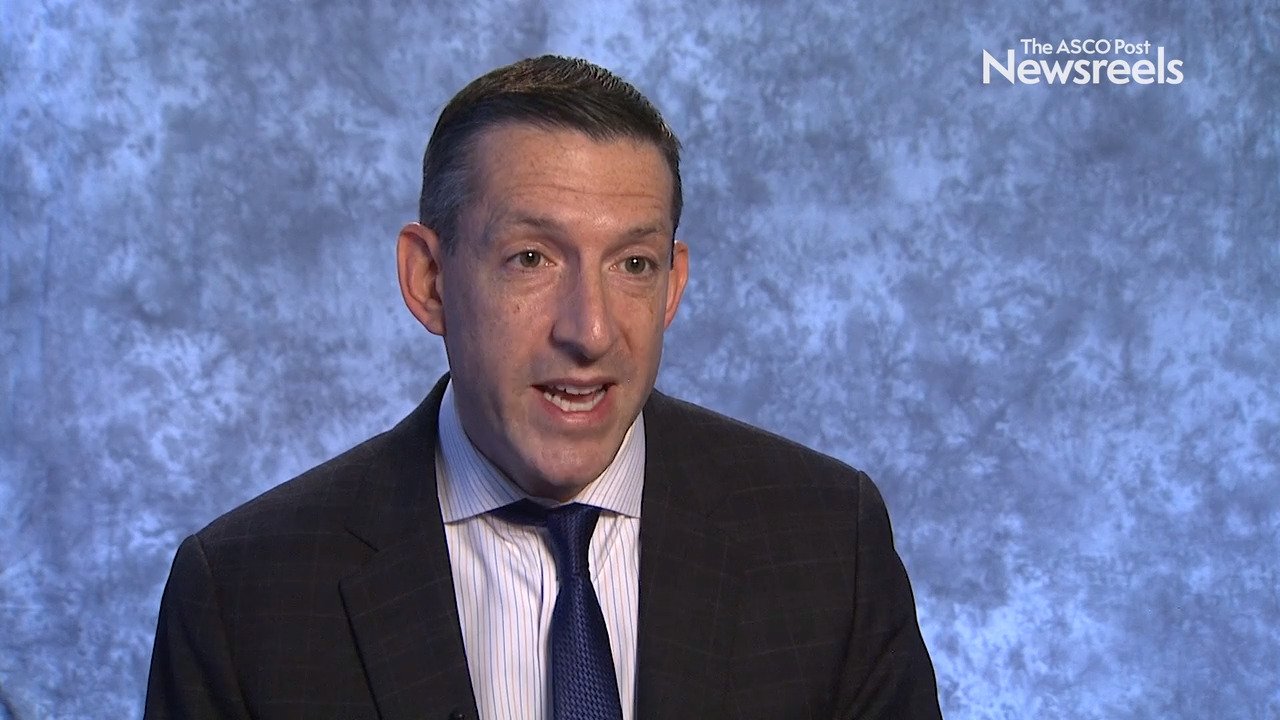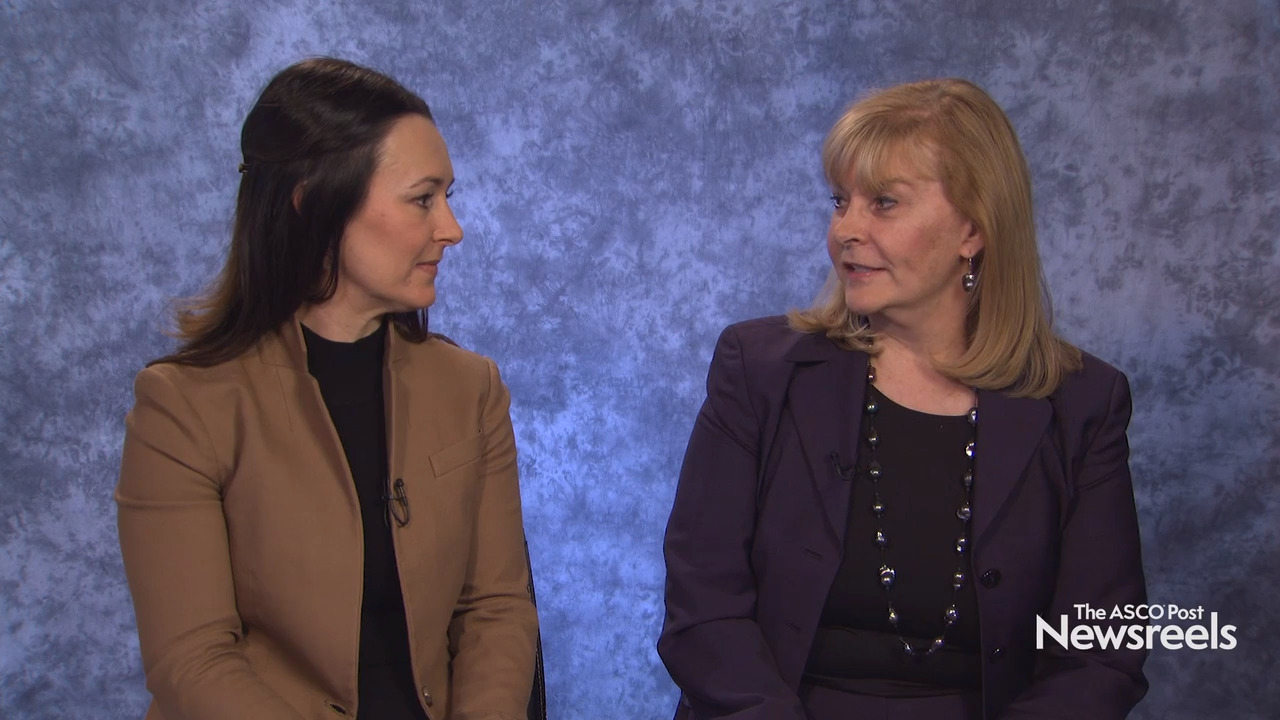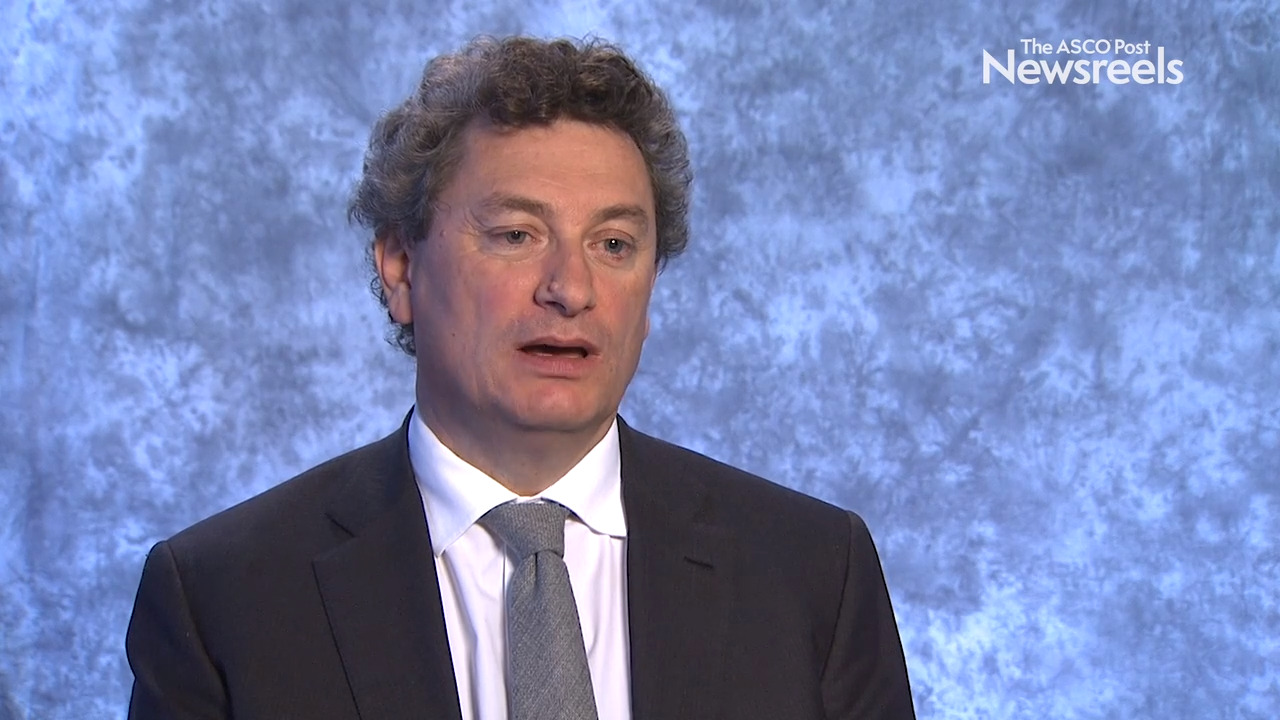Julie Vose, MD, MBA, and Merav Bar, MD, on CAR T-Cell Therapy: Late Effects of CD19-Targeted Treatment
2018 ASH Annual Meeting & Exposition
Julie Vose, MD, MBA, of the University of Nebraska Medical Center, and Merav Bar, MD, of the Fred Hutchinson Cancer Research Center, discuss study findings on the long-term effects in people with relapsed or refractory non-Hodgkin lymphoma and chronic lymphocytic leukemia who received CD19-targeted CAR T-cell infusions, survived more than a year, and had at least 1 year of follow-up data after their first treatment (Abstract 223).
Tait D. Shanafelt, MD, of Stanford University, discusses phase III study findings on ibrutinib-based therapy vs standard fludarabine, cyclophosphamide, and rituximab chemoimmunotherapy in untreated younger patients with chronic lymphocytic leukemia (Abstract LBA4).
Saar I. Gill, MD, PhD, of the University of Pennsylvania, discusses findings from a prospective clinical trial on the high response rate in patients with chronic lymphocytic leukemia who received a combination therapy of CAR T cells plus ibrutinib (Abstract 298).
Mikkael A. Sekeres, MD, of the Cleveland Clinic, discusses phase III study findings on luspatercept to treat anemia in patients with very low-, low-, or intermediate-risk myelodysplastic syndromes with ring sideroblasts who require red blood cell transfusions (Abstract 1).
Julie Vose, MD, MBA, of the University of Nebraska Medical Center, and Loretta J. Nastoupil, MD, of The University of Texas MD Anderson Cancer Center, discuss findings from a multicenter study of axicabtagene ciloleucel CD19 CAR T-cell therapy for relapsed or refractory aggressive B-cell lymphoma when used as a standard of care (Abstract 91).
Gilles A. Salles, MD, PhD, of Centre Hospitalier Lyon Sud, discusses trial findings on the monoclonal antibody MOR208 combined with lenalidomide in people with relapsed or refractory diffuse large B-cell lymphoma (Abstract 227).
